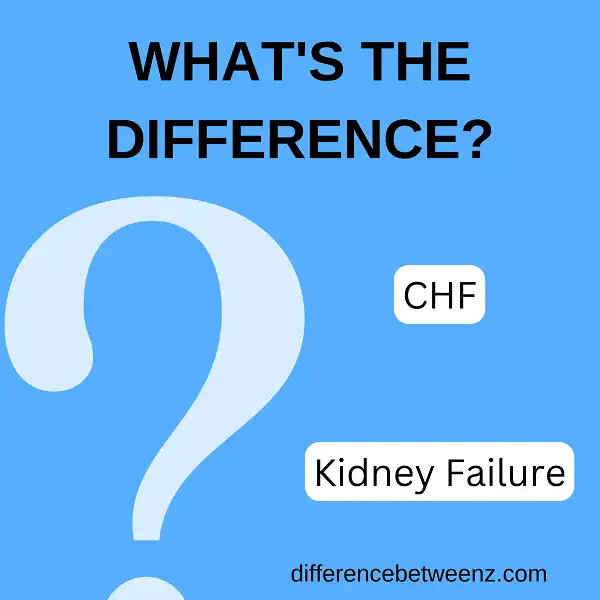Chronic heart failure (CHF) and chronic kidney disease (CKD) are two common health conditions that are often mistaken for one another. While they both share some common symptoms, there are also some important differences between the two diseases. In this blog post, we will take a closer look at the key similarities and differences between CHF and CKD. We will also discuss how to tell the difference between these two conditions.
What is CHF?
CHF stands for congestive heart failure. It means that the heart isn’t pumping blood as efficiently as it should. Congestive heart failure doesn’t mean that your heart has stopped or is about to stop working. When your heart can’t pump enough blood to meet your body’s needs, congestion, or fluid build-up, can happen in different parts of your body. Heart failure usually occurs when the heart muscle is damaged by a heart attack, high blood pressure, diabetes, or other conditions.
The damaged heart muscle doesn’t pump as well as it should. This can cause a buildup of fluid in the lungs, liver, and other organs. Heart failure is a serious condition that requires medical treatment. If you have congestive heart failure, you may need to make changes to your lifestyle and take medications. CHF is a serious condition, but with proper treatment, many people with CHF live long and productive lives.
What is Kidney Failure?
Kidney failure is a serious medical condition in which the kidneys are unable to filter waste products from the blood. This can lead to a build-up of toxins in the body, which can be fatal if left untreated. Kidney failure can be caused by a number of factors, including diabetes, high blood pressure, and certain medications. Treatment typically involves dialysis or a kidney transplant.
Dialysis is a process that uses a machine to filter waste products from the blood, while a kidney transplant involves surgically placing a healthy kidney from a donor into the patient’s body. Kidney failure is a serious condition that requires prompt medical treatment. If you think you may be at risk for kidney failure, it is important to talk to your doctor as soon as possible.
Difference between CHF and Kidney Failure
Though both congestive heart failure (CHF) and kidney failure can lead to fluid buildup in the body, they are two distinct conditions with different causes.
- CHF occurs when the heart is unable to pump enough blood to meet the body’s needs, and as a result, blood backs up into the lungs and other organs.
- Kidney failure, on the other hand, occurs when the kidneys are unable to remove waste and excess fluid from the blood. This can be due to a variety of causes, including diabetes, high blood pressure, and infection.
While both CHF and kidney failure can be serious conditions, early diagnosis and treatment can improve outcomes for patients.
Conclusion
Although the symptoms of kidney failure and congestive heart failure may be similar, there is a significant difference between the two conditions. It is important to understand these differences in order to receive an accurate diagnosis and treatment plan. If you are experiencing any of the symptoms of either condition, it is important to consult with a healthcare professional as soon as possible.


